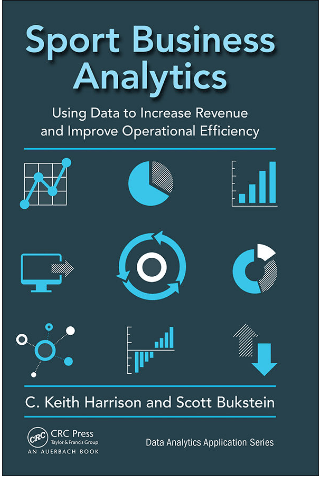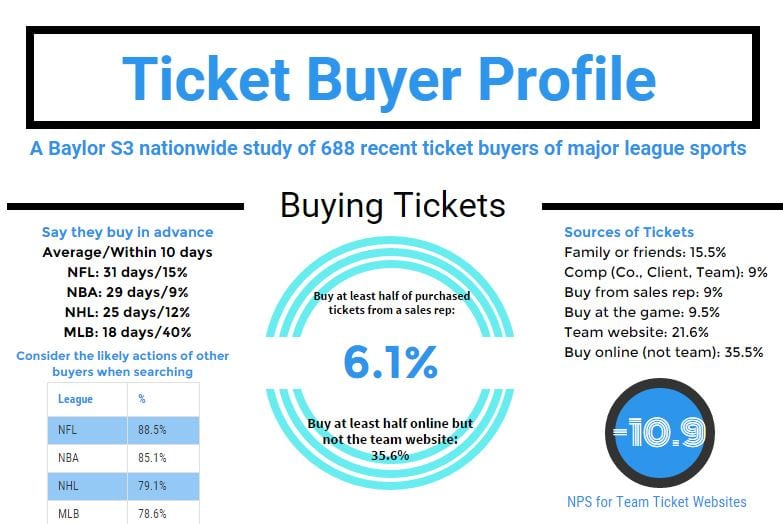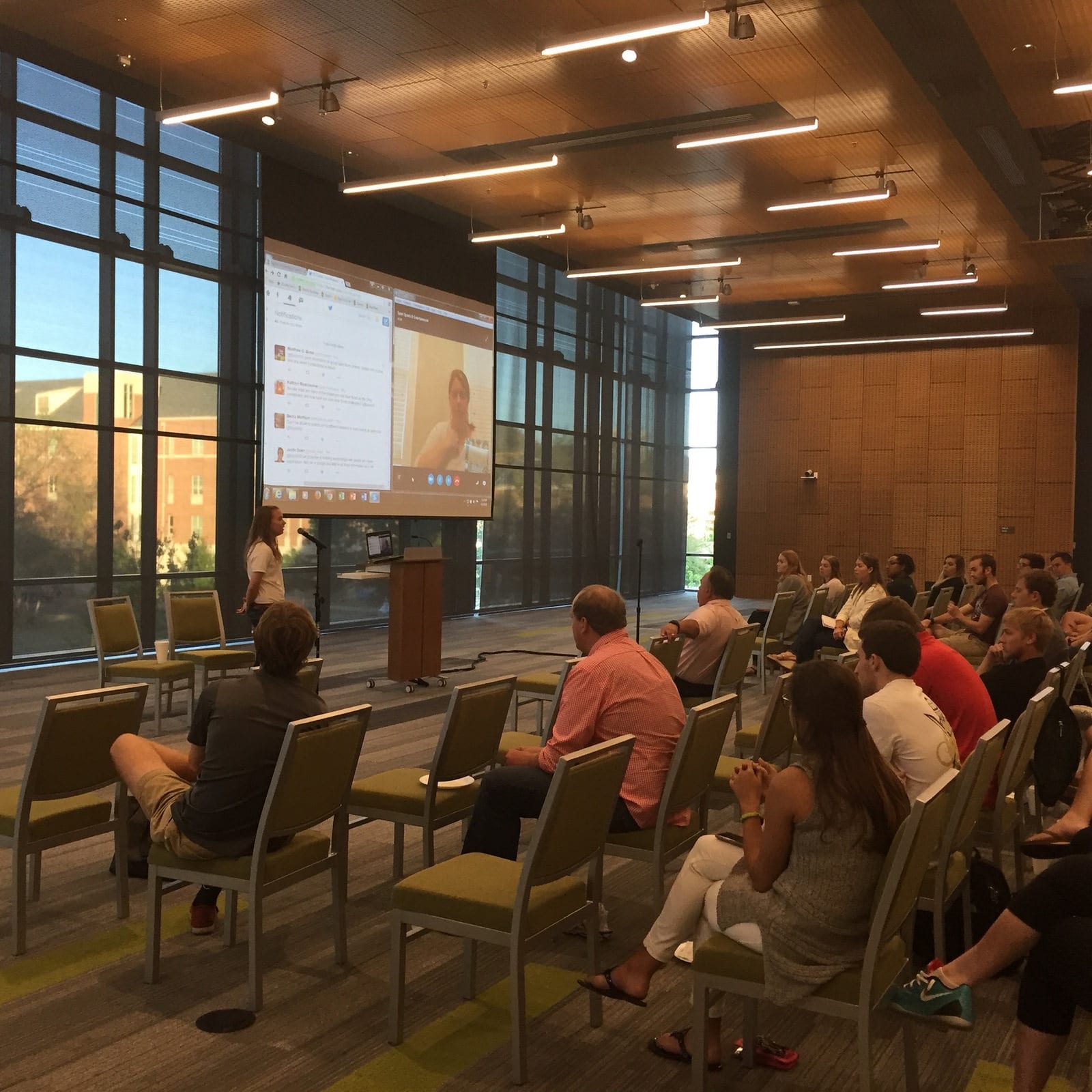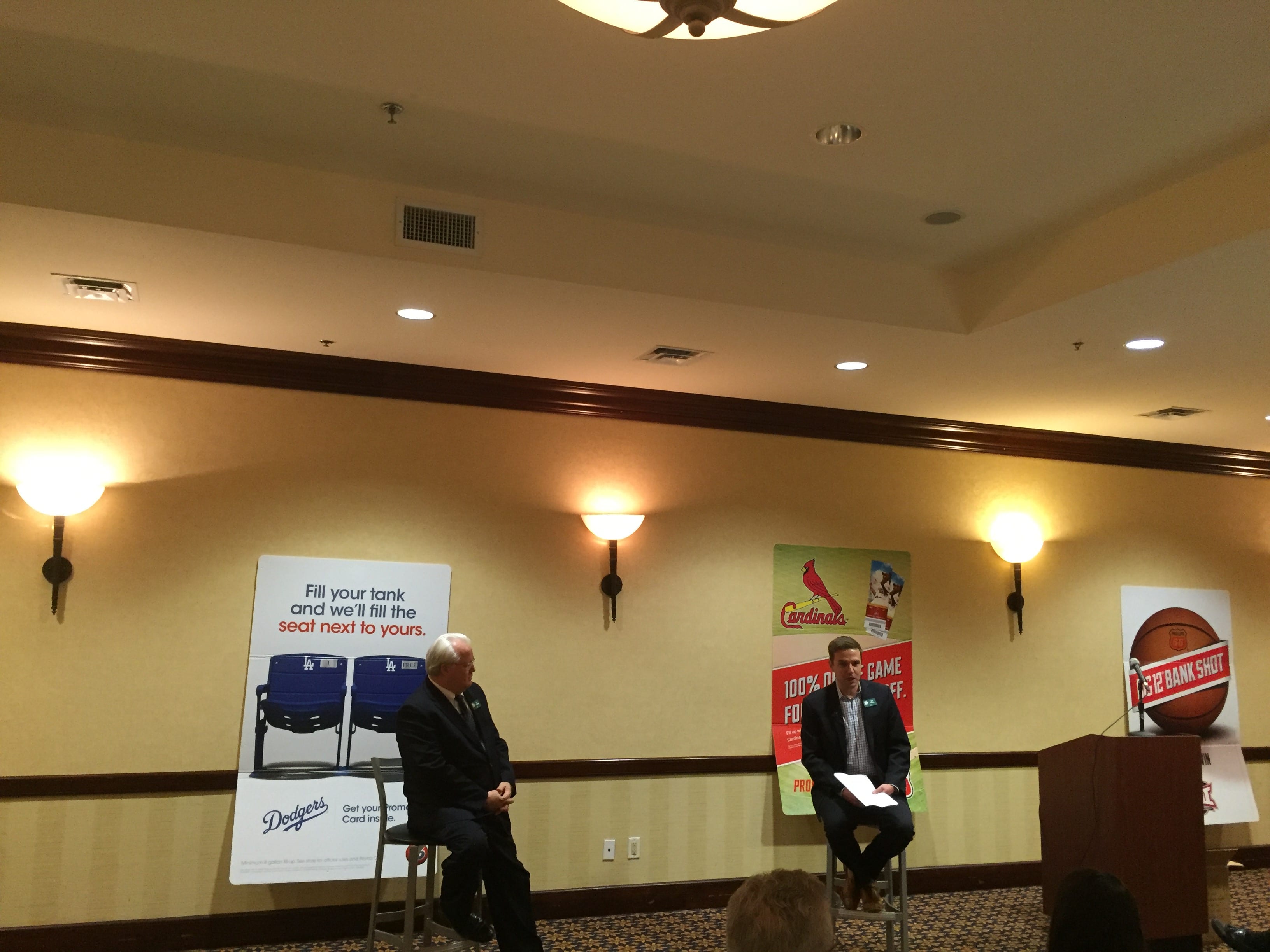by Kirk Wakefield – January 2017
Business intelligence is old school. Business analytics is new school. Sport business analytics is finally going to school. In the past decade, interest grew beyond the 100 or so nerds at the first MIT Sports Analytics Conference to sellout crowds (>3000 geeks and wannabes) today. At the same time, courses and programs have emerged to educate tomorrow’s sports business analysts.
To that end, C. Keith Harrison and Scott Bukstein, of the University of Central Florida, compiled a collection of 13 chapters (plus a chapter on teaching a related class) from professionals and academics for their edited book released by Taylor & Francis, entitled, “Sport Business Analytics: Using Data to Increase Revenue and Improve Operational Efficiency.”
In all fairness, I acknowledge a number of the chapter authors are associates. My intent, then, in this book review is to not treat them as I do my friends, but will instead try to be considerate and complimentary.
The Evolution & Impact of Business Analytics in Sport
The question, “What is analytics? Really?” is often raised among academics. Professors and data scientists tend to think of analytics as using advanced statistical techniques to model and predict behaviors based on (big) data. Practitioners may refer to analytics when they really mean reporting.
In the opening chapter overview of the text, Scott Bukstein states the core purpose of sport business analytics is “to convert raw data into meaningful, value-added and actionable information that enables sport business professionals to make strategic business decisions, which then result in improved company financial performance and a measurable and sustainable competitive advantage.” In short, analytics is any “data-driven process as well as any actionable insights derived from data.”
Consistent with this understanding, the book chapters provide good case examples of data-driven processes that produce actionable insights. In large part, many of the chapters read as a series of case studies with examples of how organizations implement analytics. The chapters provide instruction to understand what leading teams and companies do on a day-to-day basis, as well as propose thought-provoking ideas for practitioners.
Ticketing Innovation
In Chapter 2, Jay Riola offers replicable examples of how the Orlando Magic use customer data to target and engage fan segments through appropriate digital channels and devices. Other teams would do well to learn from the success of the Magic’s Fast Break Pass and season ticket holder app, as thoroughly explained by Jay in this chapter.
Using ticket pricing analytics, Troy Kirby does a great job explaining how the secondary market is the primary market, in Chapter 3. Troy makes the argument that a ticket may eventually evolve beyond its current revocable license legal status to a material good, allowing greater freedom for fans to use and resell however they wish. The practical upshot of these two chapters is teams must more quickly adapt to digital channels–whether owned by the team or others–to provide value to fans. Teams with NIH attitudes will suffer.
Data Management & Marketing
Ray Mathew offers a basic understanding of how teams use CRM to gather and analyze customer data for use in targeted marketing campaigns in Chapter 4. Since CRM coordinators are typical entry-level positions, interested learners should be motivated to self-learn, intern, or take courses in CRM to prepare for careers in data management in sports. This chapter provides a good foundation for students to understand if this is a viable career path for them.
 Michael Farris provides an overview of the Aspire Group’s 8-point ticket marketing, sales and service philosophy in Chapter 5. Academic programs lacking courses in marketing strategy will benefit from the Aspire Group’s marriage of marketing with analytics. Programs housed in business schools will also appreciate founder Bernie Mullin‘s sound approach to management and marketing. The application of the model to the experiences of Georgia Tech are particularly insightful for NCAA programs. Plus, students in classes adopting this text will go into interviews with Aspire knowing what they’re all about!
Michael Farris provides an overview of the Aspire Group’s 8-point ticket marketing, sales and service philosophy in Chapter 5. Academic programs lacking courses in marketing strategy will benefit from the Aspire Group’s marriage of marketing with analytics. Programs housed in business schools will also appreciate founder Bernie Mullin‘s sound approach to management and marketing. The application of the model to the experiences of Georgia Tech are particularly insightful for NCAA programs. Plus, students in classes adopting this text will go into interviews with Aspire knowing what they’re all about!
Research & Applications
Chapter 6 leans closer to the professor or data scientist’s POV of business analytics. Michael Lewis, Manish Tripathi and Michael Byman address the importance of calculating, tracking, and managing customer lifetime value (CLT) and related functions of brand and fan equity. CLV is critical to model retention and seat-buying decisions. The authors present insights into NFL team’s fan equity and social media equity to pinpoint pricing and promotion opportunities. Updates among leagues are available on Michael Lewis’ blog at Emory University (follow link here).
John Breedlove illustrates how teams use analytics to improve the performance of sales reps with targeted campaigns to open the door to warm leads. In this chapter (7), John illustrates the importance of keeping analytics simple to increase efficiency and effectiveness. Combining public (secondary) and private (primary) data can provide insights to make decisions, as when the Tampa Bay Buccaneers used public geodemographic information to help set prices and target customer segments. This chapter provides a good explanation and case study for A/B testing.
Digital Media Analytics
Duke University serves its huge fan base through its crowdsourced data visualization platform know as #DukeMBBStats. Ryan Craig provides an engaging explanation of the process Duke followed to grow the platform. Ryan’s chapter (8) offers direction for other NCAA and pro organizations to create fan profiles to authentically and personally engage fans with effective marketing strategies to enhance renewals.
Michael Lorenc and Alexandra Gonzalez present a fascinating chapter (9) on leveraging digital marketing to drive revenue, relying on data from their employer (Google) to paint a picture of today’s digital buyer. Evidence shows the potential ROI on digital marketing informed by audience, acquisition, and behavioral and conversions data via Google Analytics. You’ll be analyzing your own website and digital marketing before you finish the chapter.
Sponsorship Valuation & Affinity Groups
Adam Grossman and Irving Rein provide one of the best summaries I’ve read on the state-of-the art in sponsorship valuation. [dropshadowbox align=”right” effect=”lifted-both” width=”200px” height=”” background_color=”#ffffff” border_width=”1″ border_color=”#dddddd” ]”Where audience analysis often fails is the inability to recognize that it is never static.” ~Grossman & Rein[/dropshadowbox] The authors provide descriptions of inherent valuation (profits generated by sponsorship assets), relative valuation (comparing CPMs across channels), and comparable valuation (comparing the price of assets offered by different properties), as well as how best to communicate to particular audiences. In addition to teaching at Northwestern (along with Professor Rein), Adam founded Block Six Analytics, using analytics and technology to help brands and teams generate revenue.
Co-editor C. Keith Harrison of the text, along with Suzanne Malia Lawrence, introduce the concept of “live analytics” in Chapter 11 to study and understand affinity groups and develop marketing plans accordingly. Live analytics, in this case, means distributing surveys during events, collecting and analyzing the results, and then creating innovative ways to engage fans. They provide an example of the Gridiron Girls football clinic at Montana State University. Another good example at the pro level is the Dallas Cowboys 5-Points Blue designed for female fans, based on extensive primary research and analysis of other NFL teams to differentiate the affinity group.

Talent Analytics & Data-Driven Storytelling
Brandon Moyer explains how the Aspire Group and others use analytics to hire and develop talent in the business of sports. At Aspire, they look for employees with WHOPPPP:
- Work ethic
- Honesty, integrity & character
- Openness to learning
- Passion for sport business & sales
- Production (results)
- Positive attitude
- Potential for leadership
This chapter (12) provides other examples of how teams and companies (should) use data-driven approaches to hire and evaluate personnel.
Ryan Sleeper illustrates a variety of data visualization approaches to enhance storytelling–or communication–with the intended audience in Chapter 13. Effective visualization reduces time to insight, increases accuracy and improves engagement. The lesson here, again, is: Keep it simple. Ryan offers engaging examples of how to hook an audience–like converting a league standings table into a map to quickly gauge relative team performance. See more of his Tableau tips at his website. While we are at it, we strongly recommend taking a course in Tableau if your goal is to succeed in the business of sports.
Conclusion
Michael Mondello provides a concluding chapter on how to teach a sports business analytics course. Dr. Mondello provides helpful examples of his approach to class relative to content delivery, class assignments, and exams.
The approach in the Sport Sponsorship & Sales (S3) program is to combine the Sport Business Analytics text (most Mondays) followed by lab instruction (most Wednesdays) using Microsoft Dynamics 365 to learn CRM and marketing automation processes reliant upon analytics. Microsoft IT Imagine Academy provides video instruction for learners at member Microsoft Dynamics Academic Alliance schools. Code Academy offers free courses on related data management topics, such as SQL.
To assist others using the text, below is a list of key terms for each chapter. To give the reader of this review an idea of the concepts and content, the first and last chapter are complete with definitions. The first chapter outline also provides tips on studying, just in case some students are still trying to figure that out. Other chapters contain key terms/concepts only. Feel free to download, edit and use for your own class purposes.





















